High-tech fries thanks to statistics
Puck Mulders defended her PhD thesis at the Department of Mechanical Engineering on March 6th.
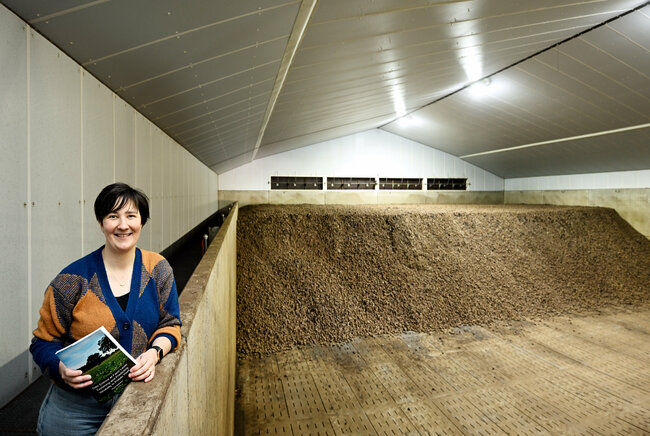
She often stood between the potato plants in her boots and now these experiments serve as the basis for sustainable fry project ‘Frietje Precies’. Thanks to the elaborate data analysis by TU/e researcher Puck Mulders, an innovative potato farmer recently started optimizing the management of his farm. How can you harvest as many potatoes as possible in a sustainable way? And what influence does the increasingly frequent extreme weather have on potato cultivation? This also sparked the interest of the Royal Netherlands Meteorological Institute (KNMI), which is why Mulders’ research was incorporated into the latest climate scenarios.
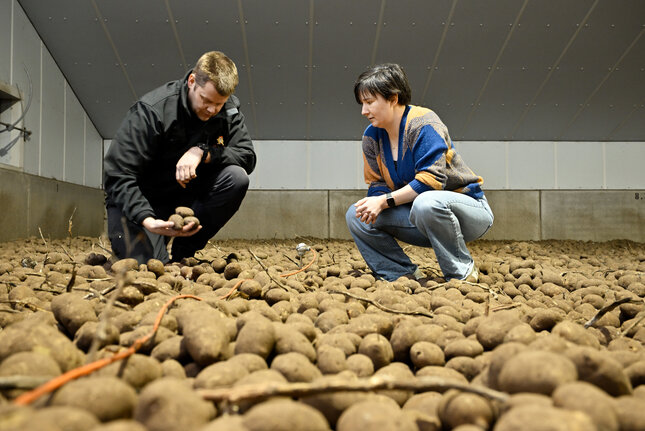
She loves fries, Puck Mulders admits with a laugh. Above all, however, she thinks it’s very valuable her PhD research contributed to making farming a bit more futureproof, she continues in a more serious tone. “More and more food is needed for the growing world population. At the same time, agriculture has a negative impact on the environment, and we are increasingly faced with extreme weather due to climate change. This means it’s essential to change the way we farm. Data analyses can play an important part in this regard.” On Wednesday, March 6, Mulders will defend her dissertation at the Department of Mechanical Engineering.
With a grandpa who was the director of cooperative agricultural organization Cehave, another grandpa who traded in animal feed, and a father who chairs the Dutch Fruit Growers Organization (NFO), Mulders started learning about agriculture and horticulture at a young age. She knows how apples and potatoes grow, but also about the hardships of farming life. When she decided she wanted to learn more about statistics, she soon realized her PhD research was to have an agricultural connection. “Numbers and digging into the ground, that’s what makes me happy.”
Big data famer
Working with Wageningen University & Research (WUR), Mulders spent the past years analyzing data relating to innovative potato farmer Jacob van den Borne. He’s a frontrunner in the area of precision farming, collecting all kinds of data on his potatoes for years now, using a variety of sensors as well as drones that detect the growth of his crops and performs other measurements. In addition, he very regularly takes soil and plant samples, especially in the growth period. This gives him a host of data, which is intended to provide him with an insight into how to and economics can go hand in hand. How can precision farming contribute to less damage for the environment, less wastage, and a higher yield?
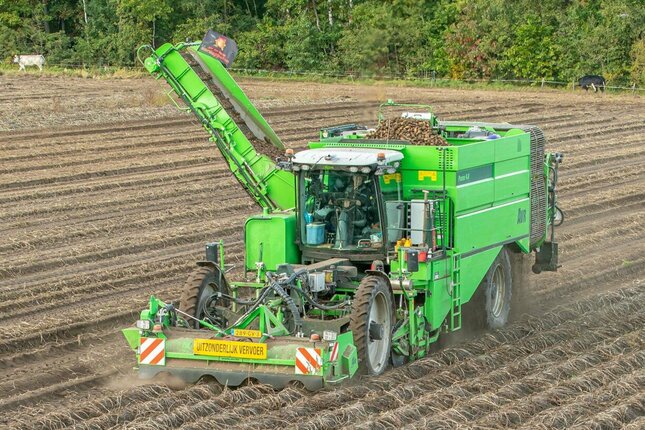
Mulders had a clear goal in mind. By creating models that can predict variability in potato yield, farmer Jacob would be ever better equipped to gauge what impact a certain choice would have, she explains. “We soon saw that choices made during the planting period, such as planting date and distance, have a major influence on the subsequent yield. Which makes sense, as farmer Jacob has a whopping 160 different fields, which are far apart to boot. Turns out this is typical of the south, where farming land was divided up among all of the sons. In other regions you see less fragmentation, because everything was passed on to the eldest son. But a farmer can’t plant all of those separate fields in one day. In fact, it takes farmer Jacob more than a month, which means the choices he makes are extra important. What you do one day, you cannot do the next.”
Weighing roots
As a result, Mulders spent a year regularly donning her boots and taking samples among the potato plants. Everything was measured and counted: from the number of stems and stem length to the weight of tubers, leaves, and roots. “This gave us a good picture of the season, and it yielded data to estimate a growth curve per field.” Mulders’ data analyses show that leave weight and stem length are the foremost predictive factors for yield, and that these parameters are influenced most by the choices made during the planting period. “Farmer Jacob initially planted his best propagating material on the fields that were the fastest to dry up, but now he’s switched to a different approach. Based on our data I can make a planting schedule for him, making sure the best propagating material ends up on the best fields. This already resulted in significant yield gains.”
Drowning potatoes
Mulders also used older data spanning six consecutive years to be able to say more about the impact of heavy rainfall or extreme drought on potato yield. “Extreme rain can be the death blow for a potato farmer. If you fail to get the water off the land, the potatoes will simply drown and you can kiss your yield goodbye. In case of dry weather, we see damage control is somewhat possible by providing extra water in the right way. The unpredictability of the weather makes everything very tricky. You can devise a perfect strategy beforehand, but the weather conditions may severely restrict your choices. In those circumstances in particular it’s good to have a model, because those choices are all the more important for the final yield.”
KNMI was impressed by the detailed data analyses Mulders carried out based on farmer Van den Borne’s mountain of data. “For the most recent climate scenarios they compiled, we are one of the eleven impact cases. We can show that data can provide an insight into how you can adapt to extreme weather, for example by improving the soil before the season starts. That works well against the drought. Farmer Jacob already made certain choices based on my research.”
Fry book
Mulders believes precision farming is the future. “We need to start looking at the cultivation of our food in a different way. With this method, crops receive the right treatment at the right time, which is beneficial to both the farmer and the environment. Having said that, it’s important to know what the important factors are and what you want to measure. Because measuring too much takes an unnecessary amount of time and money.”
Farmer Van den Borne is also convinced of his approach. He can be found at various events, raising awareness of agricultural innovations with ‘Frietje Precies’. The potatoes, sweet potatoes, and parsnips he uses for his sustainable bags of fries are grown using a combination of precision cultivation and alternating strip cropping. And even though Mulders’ toddler son proudly talks about ‘mommy’s fry book’, she is yet to try ‘Frietje Precies’. She shrugs apologetically. “Two small kids and a dissertation in the works don’t leave a whole lot of time for festivals.”
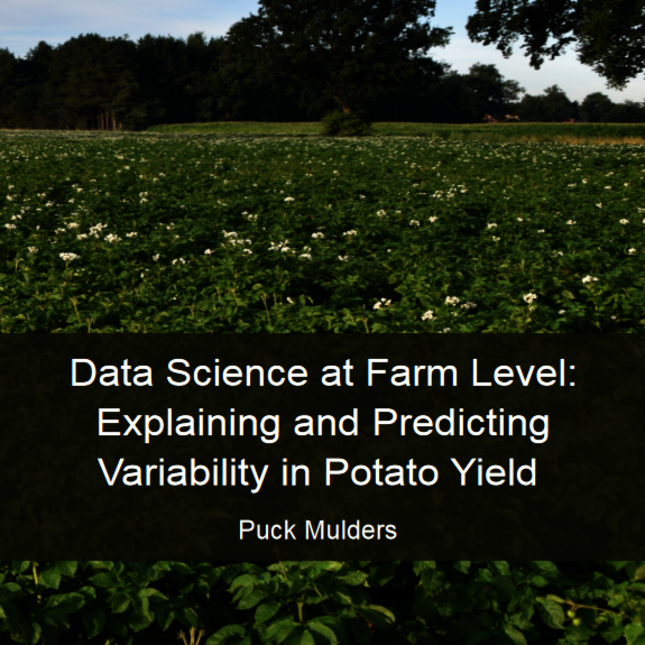
PhD in the picture
What is that on the cover of your dissertation?
“On one of the sample days, I took a picture while standing between the potato plants. A field stretching into the distance, flowers blooming. Gorgeous.”
You’re at a birthday party. How do you explain your research?
“What it comes down to is that I looked at how you can cultivate as many potatoes as possible in a more sustainable way.”
How do you blow off steam outside of your research?
“I love to zone out and swim laps, and you can also regularly find me on my racing bike. A recent acquisition to our home is an easel, but I’m not finding the time to paint as often as I would like.”
How does your research contribute to society?
“There are more and more people on earth and climate change is causing increasingly big problems. Innovations in agriculture are therefore essential. By using data in a smart way, sustainability and economics can go hand in hand.”
What is your next step?
“I’m currently working at my group as an Operations Manager, which is a new challenge. But I’ve always immensely enjoyed fieldwork, which allows you to step out of the academic bubble and forces you to get your hands dirty. And at the same time, it’s so incredibly satisfying to be able to really accomplish something. So who knows, in the future you might find me among the potatoes or other crops again.”
Title of Puck Mulder's dissertation: Data Science on Farm Level: Explaining and Predicting Variability in Potato Yield
Supervisors: Maurice Heemels en Edwin van den Heuvel
Media contact
Latest news

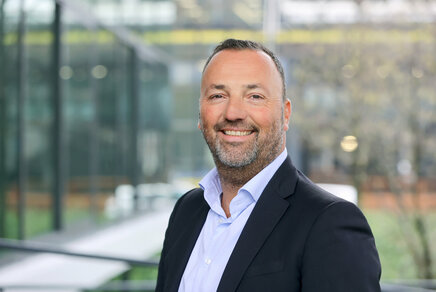
![[Translate to English:] [Translate to English:]](https://assets.w3.tue.nl/w/fileadmin/_processed_/e/0/csm_BvOF%202019_1031_BHF%20license%20TUe%20ILI%20copy_8a50884392.jpg)